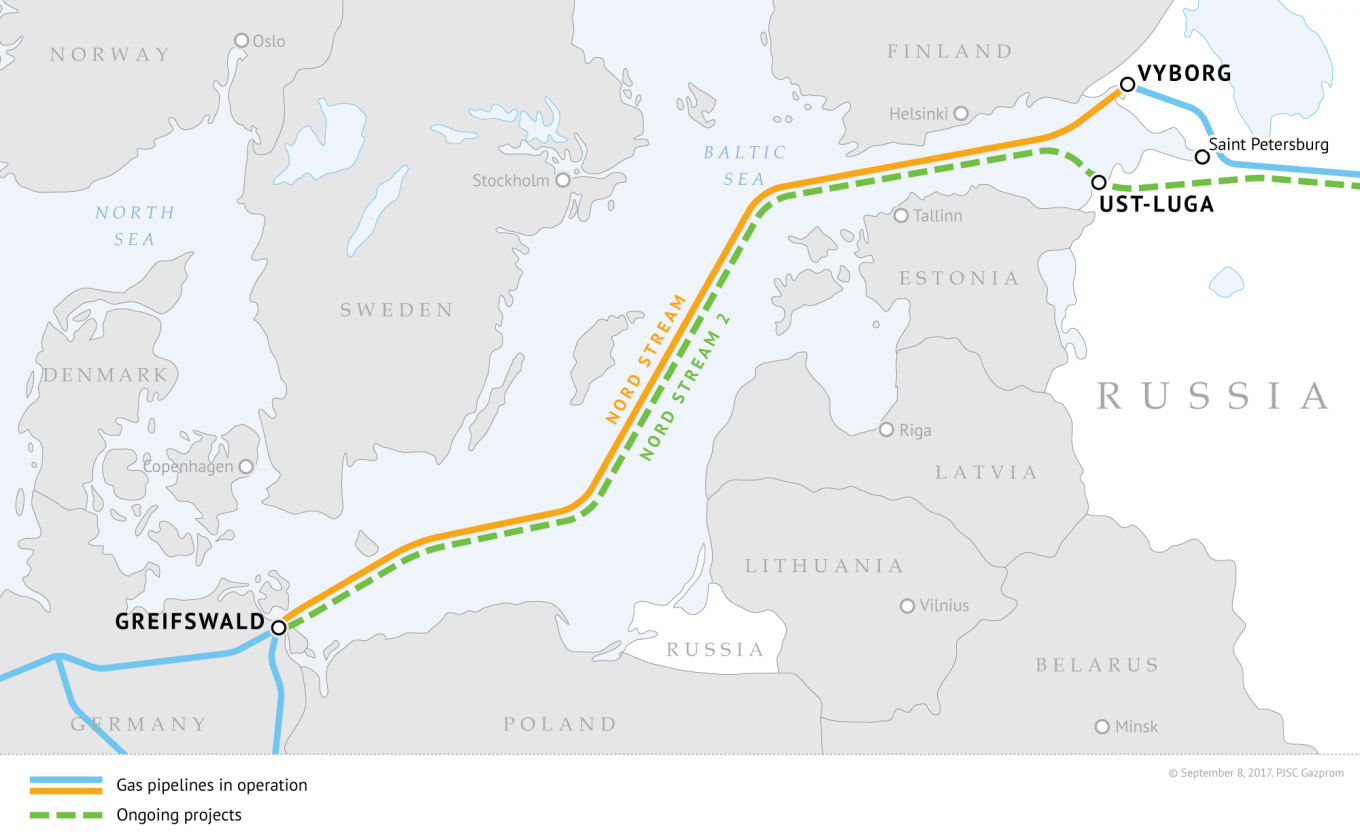Construction work resumed Friday on the disputed Nord Stream 2 pipeline which is to bring Russian gas to Germany, the project’s managers said, despite protests from the United States.
Work on the 10-billion-euro ($11 billion) pipeline had been suspended for nearly a year because of U.S. sanctions signed off by U.S. President Donald Trump in late 2019 that threatened asset freezes and visa restrictions for companies involved in the construction.
Trump’s administration has repeatedly slammed Germany and other European nations for their reliance on energy from Russia, with the president himself calling Europe’s biggest economy a “captive to Russia.”
But on Friday, Germany’s Authority of Waterways and Shipping Management published a notice to seafarers on the resumption of building works on the final few kilometres of the pipeline.

It warned them to avoid the area up to “around Dec. 31,” and pointed out that “anchoring or fishing is not permitted in the area of the planned pipelines.”
Confirming the resumption of construction, Nord Stream 2 said in a statement that “the pipelay vessel Fortuna will lay a 2.6 kilometer (1.6 mile) section of the pipeline in the German Exclusive Economic Zone in water depths of less than 30 meters (100 feet).”
Besides Russian giant Gazprom, which has a majority stake in the project, the international consortium involved in the pipeline includes European players such as Germany’s Wintershall and Uniper groups, the Dutch-British giant Shell, France’s Engie and Austria’s OMV.
News of works resuming sent Gazprom’s stocks leaping 3.5% on the Moscow stock exchange.
German Chancellor Angela Merkel has held firm on the project despite facing heavy criticism within and outside Germany over it.
Besides the United States, European nations like Poland, Ukraine and the Baltic states are also fiercely opposed to the pipeline, fearing it will increase Europe’s reliance on Russian energy supplies, which Moscow could then use to exert political pressure.
Following the poisoning of Russian opposition figure Alexei Navalny earlier this year, there had been speculation that Germany might pull the plug on the deal.
But sanctions imposed over the poisoning have so far steered clear of affecting the pipeline project.
Navalny was treated in a Berlin hospital and German authorities concluded that he had been poisoned with a rare Novichok nerve agent developed by Russian authorities, plunging relations with the Kremlin to a new low.
A Nordstream 1 pipeline, which runs along a similar route to Nordstream 2, was inaugurated in 2011.
